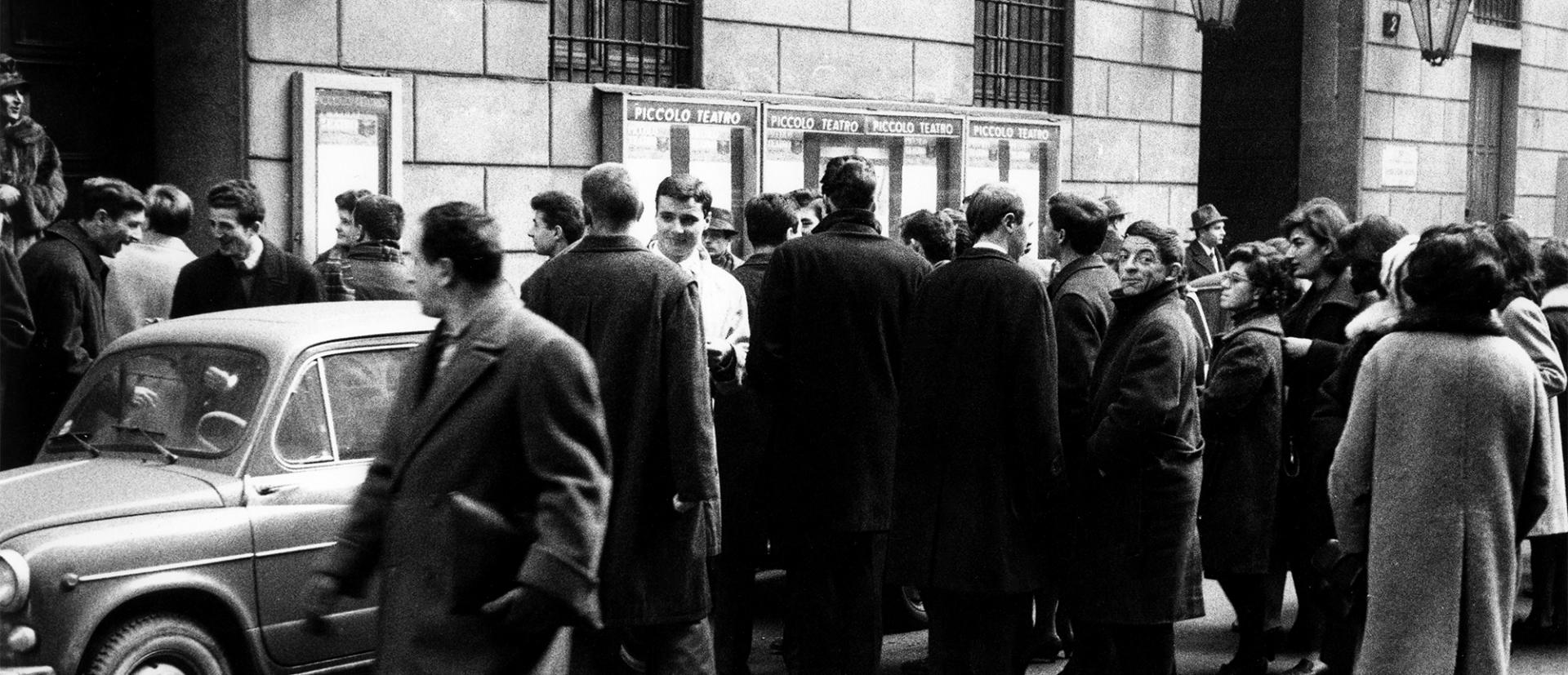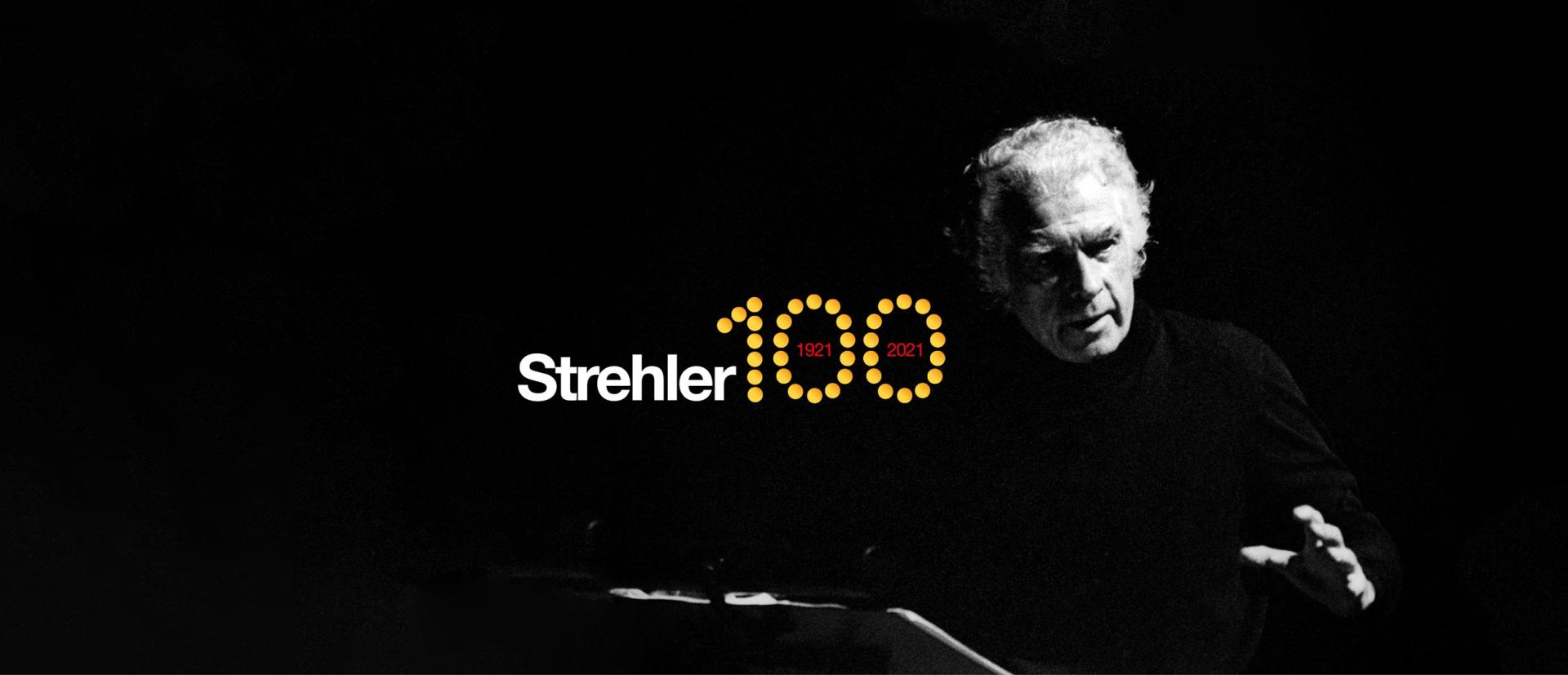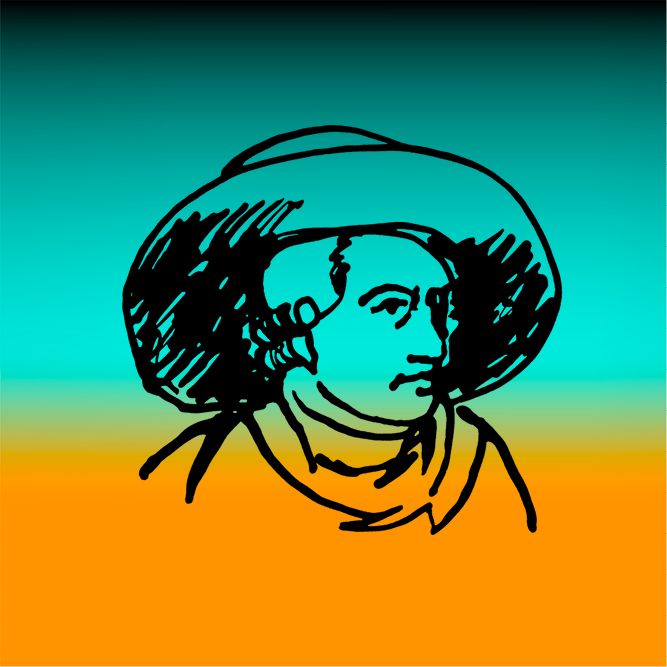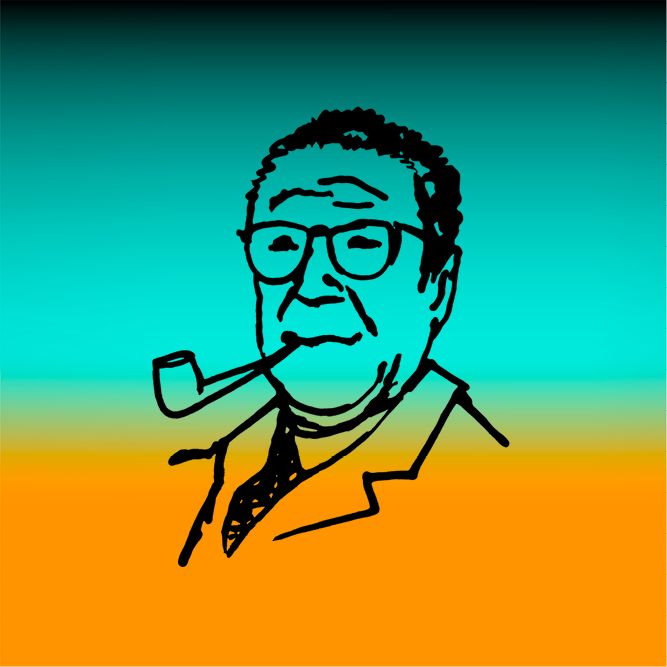Strehler città aperta: gli incontri

Strehler città aperta: gli incontri
«Non è mai detta l’ultima parola» ricordava Strehler parafrasando un passaggio di Vita di Galileo a sottolineare l’irriducibilità che caratterizza la Versuche brechtiana e cui si ispira, più in generale, ogni ricerca artistica e scientifica. Non è mai stata detta nemmeno a proposito di Strehler, il cui slancio e la cui generosità prospettica diventano, attraverso questo ciclo di incontri, ponte aperto sul nostro presente.
Fondazione Arnoldo e Alberto Mondadori
1945: Milano è una città da ricostruire. L’eredità di una guerra, però, non si compone soltanto di case e di edifici distrutti, di laterizi e tetti scoperchiati. Ci sono anche le macerie culturali, il dialogo interrotto, sbriciolato o, nella migliore delle ipotesi, sospeso tra editoria e scrittori, i fili da riannodare coi lettori, il fare i conti con le esigenze e l’identità di nuovo pubblico. Stella Casiraghi, Irene Piazzoni e Oliviero Ponte di Pino attraversano la storia dei grandi e piccoli editori che, nel dopoguerra, hanno riportato Milano al centro della vita intellettuale del paese, facendo dell’editoria e della carta stampata il fiore all’occhiello della città.
Scopri gli incontri del ciclo "Sfogliare la scena"
Fondazione Corriere della Sera
La cultura, l’urbanistica, la politica, la classe dirigente e i nuovi rapporti sociali: Milano, all’indomani della Liberazione, è come un treno in corsa che attraversa il boom e la recessione, le repentine metamorfosi economico-sociali, le scommesse culturali e la ricerca di una nuova identità internazionale con affaccio sull’Europa. Si terrà, nella cornice di Sala Buzzati, un ciclo di quattro incontri-lezione dedicati alla Milano di Strehler, quattro fermate cittadine a scandagliare la “capitale morale” e la sua peculiarissima capacità di non tirarsi mai indietro di fronte alle sfide che i momenti di profondo cambiamento storico del secondo Novecento le hanno lanciato.
Scopri il primo dei quattro incontri
Fondazione Giangiacomo Feltrinelli
Intellettuali contemporanei e rappresentanti del mondo artistico saranno chiamati ad approfondire la figura di Giorgio Strehler sotto il suo profilo più politico. Un ciclo di tre incontri dedicati ad altrettanti nuclei tematici: la funzione della cultura nelle fasi di ricostruzione di un paese, quello del teatro come critica sociale e, infine, il ruolo dell'intellettuale pubblico. A fare da ubi consistam l’inesauribile e preziosissimo patrimonio librario e archivistico della Fondazione Feltrinelli.
Gallerie d’Italia
Nell’ambito del sostegno accordato da Intesa Sanpaolo in occasione del centenario della nascita di Giorgio Strehler, Gallerie d’Italia ospiterà un doppio appuntamento: da un lato la visione europeista di Strehler; dall’altro l’esplorazione del contesto economico in cui nascono e si sviluppano i progetti culturali. Strehler e l’Europa, in collaborazione con Gallerie d’Italia, mira a restituire una prospettiva allargata sui rapporti tra enti locali e internazionali, sulle modalità di potenziamento delle relazioni progettuali, focalizzando l’attenzione non solo sui risultati ma anche – e soprattutto – sui processi. Quelli culturali ed economici, sulle capacità di scambio e collaborazione che intercorrono tra attori pubblici e privati.
Scopri gli incontri
Laboratorio Formentini per l’editoria
Quaranta dì, quaranta nott: le parole della celebre canzone strehleriana fanno da viatico per un laboratorio di scrittura che il Piccolo, in collaborazione con Laboratorio Formentini per l’editoria, intende attivare con detenuti, avvalendosi della preziosa esperienza di Biblioteche in rete a San Vittore. La pratica della scrittura per la scena si fa pratica inclusiva, facendo della parola il grimaldello con cui aprire un canale di comunicazione diretto tra il dentro e il fuori, ma anche un testimone scritto che faccia da ponte tra i detenuti (la permanenza media all’interno di San Vittore è di novanta giorni) e diventi strumento di trasmissione esperienziale.
MEET Digital Culture Center | Fondazione Cariplo
Non è solo il concetto di “ripartenza” che deve animare la stagione post-Covid, ma è quello di una vera e propria “ricostruzione”, una “rifondazione” valoriale capace di fondere la tradizione del sapere con le strategie del digitale e le nuove tecnologie. È sotto l’auspicio di un umanesimo digitale che il nuovo spazio MEET in piazza Oberdan apre le sue porte ai cittadini e al pubblico del Piccolo: un percorso che, a partire da Strehler e dalla sua eredità, rifletterà con una serie di eventi sulla capacità dell’arte di elaborare futuro. Il primo appuntamento è stato sabato 16 ottobre 2021 con una maratona dedicata a uno degli artisti visivi più importanti del panorama internazionale: al MEET Theater sono stati proiettati alcuni degli spettacoli più iconici di Bob Wilson, in particolare gli ultimi che lo hanno visto personalmente in scena come Hamlet: a monologue del 1995 e Krapp’s last tape del 2009. Al termine della giornata Wilson ha incontrato il suo pubblico per una riflessione sul suo percorso artistico e i nuovi linguaggi espressivi.
Museo Nazionale Scienza e Tecnologia Leonardo da Vinci
Come vengono recepite all’interno della società civile la comunità scientifica e le sue scoperte? Il tema della divulgazione, al centro delle cronache degli ultimi mesi grazie all’emergenza sanitaria, si rivela materia incandescente anche sul versante della narrazione e della creazione drammaturgica. Lo sapeva bene Strehler quando metteva mano a Vita di Galileo, lo si cercherà di far percepire alle nuove generazioni attraverso un doppio laboratorio dedicato alla scrittura drammaturgica e alla messa in voce di una “drammaturgia per la scienza”.
Museo del Novecento
Da Renato Guttuso ad Alberto Savinio, passando per Piero Fornasetti e Felice Casorati: sono molti gli artisti visivi che, nel corso degli anni, hanno incrociato il proprio cammino con quello di Strehler. Un incontro di operosità che è qualcosa di più di un “mettersi al servizio” del teatro o del genio strehleriano, ma è – come si racconterà in questi due appuntamenti ideati in collaborazione con il Museo del Novecento – un intrecciarsi di intenti, un interrogarsi reciproco che illumina dialettiche sorprendenti e talvolta del tutto inattese.
Pinacoteca di Brera
Dalla braida (campo incolto ai limiti dell’abitato) a Brera: l’edificazione culturale di uno dei quartieri simbolo di Milano passa da figure irripetibili, Fernanda Wittgens, Luciano Bianciardi, Piero Manzoni – per nominarne solo alcune – a testimoni attivi e inestimabili fautori di una trasformazione epocale. Un fenomeno di conversione fatto di relazioni umane ma anche di dialogo con le nascenti istituzioni che ne abitano i confini: dalla Pinacoteca al Piccolo Teatro di Grassi e Strehler, dall’Accademia di Belle Arti al Corriere della Sera. Un ciclo di appuntamenti a ricordare il ruolo centrale della Grande Brera tra la fine degli anni Quaranta e quelli del boom: città nella città, motore culturale e pietra fondativa della Milano che sarebbe stata.
Pirelli
Un ciclo di appuntamenti che affronta il tema del lavoro attraverso il filtro del teatro e dell’opera strehleriana: il lavoro come pratica identitaria e valoriale (in rapporto con Santa Giovanna dei Macelli), il lavoro in relazione all’evoluzione tecnologica (in rapporto con Vita di Galileo). Un alternarsi polifonico di voci, testimonianze, esperienze dal mondo dell’industria, dell’imprenditoria e dell’arte, arricchito di interventi di attrici e attori.
Triennale Milano
Le locandine di Remo Muratore, i progetti grafici di Massimo Vignelli ed Emilio Fioravanti, il design di Marco Zanuso: l’identità di un teatro restituita attraverso il tratto grafico dei suoi protagonisti. Un ciclo di incontri in collaborazione con Triennale Milano a riscoprire e approfondire la relazione che lega design, ricerca iconografica e scena. Per un teatro che, sotto il segno di Strehler, dia all’attributo “di tendenza” la sua connotazione migliore: quella di una fisionomia precisa che non assolva, né si faccia semplice tramite, ma detti una linea sul futuro.
Scopri il primo incontro
Veneranda Fabbrica del Duomo
Nel segno di Strehler100, il Piccolo intreccia il suo sguardo con quello della Veneranda Fabbrica del Duomo di Milano: a costruire una prospettiva inedita per far luce sulle implicazioni spirituali del “più umano dei teatri”, quello di Giorgio Strehler.
Immagine: Archivio Piccolo Teatro


 Johann Wolfgang von Goethe (1749-1832) A German author, poet and playwright who produced an endless body of work that ranged from fiction to poetry, from philosophy to science, from religion to music and much more, in line with a model of “universal man” that saw few equals in his wake. A key figure in the transition from Enlightenment to Romanticism, his most famous works include The sorrows of young Werther, Elective affinities, and Faust. Enamoured of Italy, Italian journey describes a Grand Tour that lasted two years.
Johann Wolfgang von Goethe (1749-1832) A German author, poet and playwright who produced an endless body of work that ranged from fiction to poetry, from philosophy to science, from religion to music and much more, in line with a model of “universal man” that saw few equals in his wake. A key figure in the transition from Enlightenment to Romanticism, his most famous works include The sorrows of young Werther, Elective affinities, and Faust. Enamoured of Italy, Italian journey describes a Grand Tour that lasted two years. Bernardine Evaristo (1959-) Born in London to an English mother and Nigerian father, she is a novelist and author of theatrical and critical works. Girl, woman, other has won the Booker Prize and the British Book Award and was a finalist for the Orwell Prize for political literature and the Women’s Prize for Fiction. She has always been actively involved in campaigns to valorise the work of artists of colour.
Bernardine Evaristo (1959-) Born in London to an English mother and Nigerian father, she is a novelist and author of theatrical and critical works. Girl, woman, other has won the Booker Prize and the British Book Award and was a finalist for the Orwell Prize for political literature and the Women’s Prize for Fiction. She has always been actively involved in campaigns to valorise the work of artists of colour. Thomas Bernhard (1931-1989) Born in the Netherlands, where his mother, who had conceived him out of wedlock, fled to give birth, Thomas Bernhard - author, playwright, poet and journalist - spent most of his life in Austria, and is considered as one of the greatest German-language writers of the twentieth century. Published in 1984, Woodcutters is the second book (dedicated to the theatre) in the so-called Arts Trilogy, which also includes The loser (1983, which focuses on music) and Old masters (1985, on the theme of painting).
Thomas Bernhard (1931-1989) Born in the Netherlands, where his mother, who had conceived him out of wedlock, fled to give birth, Thomas Bernhard - author, playwright, poet and journalist - spent most of his life in Austria, and is considered as one of the greatest German-language writers of the twentieth century. Published in 1984, Woodcutters is the second book (dedicated to the theatre) in the so-called Arts Trilogy, which also includes The loser (1983, which focuses on music) and Old masters (1985, on the theme of painting). Virginia Woolf (1882-1941) Born in London in 1882, Virginia Stephen had a cultured and upper-class upbringing. She became part of the so-called “Bloomsbury Set”, a group of intellectuals that took their name from the London district of the same name, where she met Leonard Woolf, the man who was to become her husband. One of the greatest exponents of the technique of stream of consciousness - which consists of presenting in written form the thoughts of an individual in a manner similar to how they would come to mind -, her works included To the lighthouse, Mrs Dalloway, and Orlando.
Virginia Woolf (1882-1941) Born in London in 1882, Virginia Stephen had a cultured and upper-class upbringing. She became part of the so-called “Bloomsbury Set”, a group of intellectuals that took their name from the London district of the same name, where she met Leonard Woolf, the man who was to become her husband. One of the greatest exponents of the technique of stream of consciousness - which consists of presenting in written form the thoughts of an individual in a manner similar to how they would come to mind -, her works included To the lighthouse, Mrs Dalloway, and Orlando. Georges Simenon (1903-1989) Famous worldwide for having created the figure of the detective Maigret, Georges Simenon was one of the most prolific authors of the twentieth century. His work (approximately 500 titles, some published under a pseudonym) cover the most wide-ranging of literary genres, from detective novels to noir, from “yellowbacks” to serial novels, as well as psychological thrillers. A Belgian-born francophone, both his working and private lives were fraught with anxiety. It was said that he could write up to eighty pages a day, in one go, without any particular preparation.
Georges Simenon (1903-1989) Famous worldwide for having created the figure of the detective Maigret, Georges Simenon was one of the most prolific authors of the twentieth century. His work (approximately 500 titles, some published under a pseudonym) cover the most wide-ranging of literary genres, from detective novels to noir, from “yellowbacks” to serial novels, as well as psychological thrillers. A Belgian-born francophone, both his working and private lives were fraught with anxiety. It was said that he could write up to eighty pages a day, in one go, without any particular preparation.